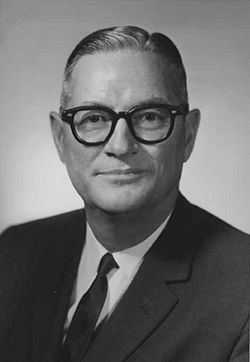User:Milton Beychok/Sandbox
Edwin Richard Gilliland (July 10, 1909 − March 10, 1973) was considered by many as the most renowned and best all-around chemical engineer of his generation. For most of his forty year career, he was a professor at the Massachusetts Institute of Technology (MIT) where he served as the head of the chemical engineering department, chairman of the faculty and on numerous committees.[1][2]
Edwin Gilliland was born in El Reno, Oklahoma in 1909. When he was a child, his family moved to Little Rock, Arkansas, where he lived until he entered he University of Illinois to study chemical engineering, After graduating in 1930 with a Bachelor of Science degree, he then went to Pennsylvania State College where he obtained a Master of Science degree a year later in 1931. In the fall of that year, he transferred to MIT where he earned his Doctor of Science degree in 1933 under the direction of Thomas K. Sherwood for whom he then worked briefly as an assistant. His engineering talents were soon recognized by Warren K. Lewis who urged him to remain at MIT rather than entering industry. Gilliland agreed and began working with Lewis on the mathematical analysis of fractionating distillation towers. Subsequently, he spent the rest of his professional career at MIT except for a leave of absence in Washington, D.C. during World War II serving the United States Government.
He was appointed as an instructor at MIT in 1934, an assistant professor in 1939 and a full professor of chemical engineering in 1944. He was appointed as the head of that department in 1961 and served as such until 1969.
